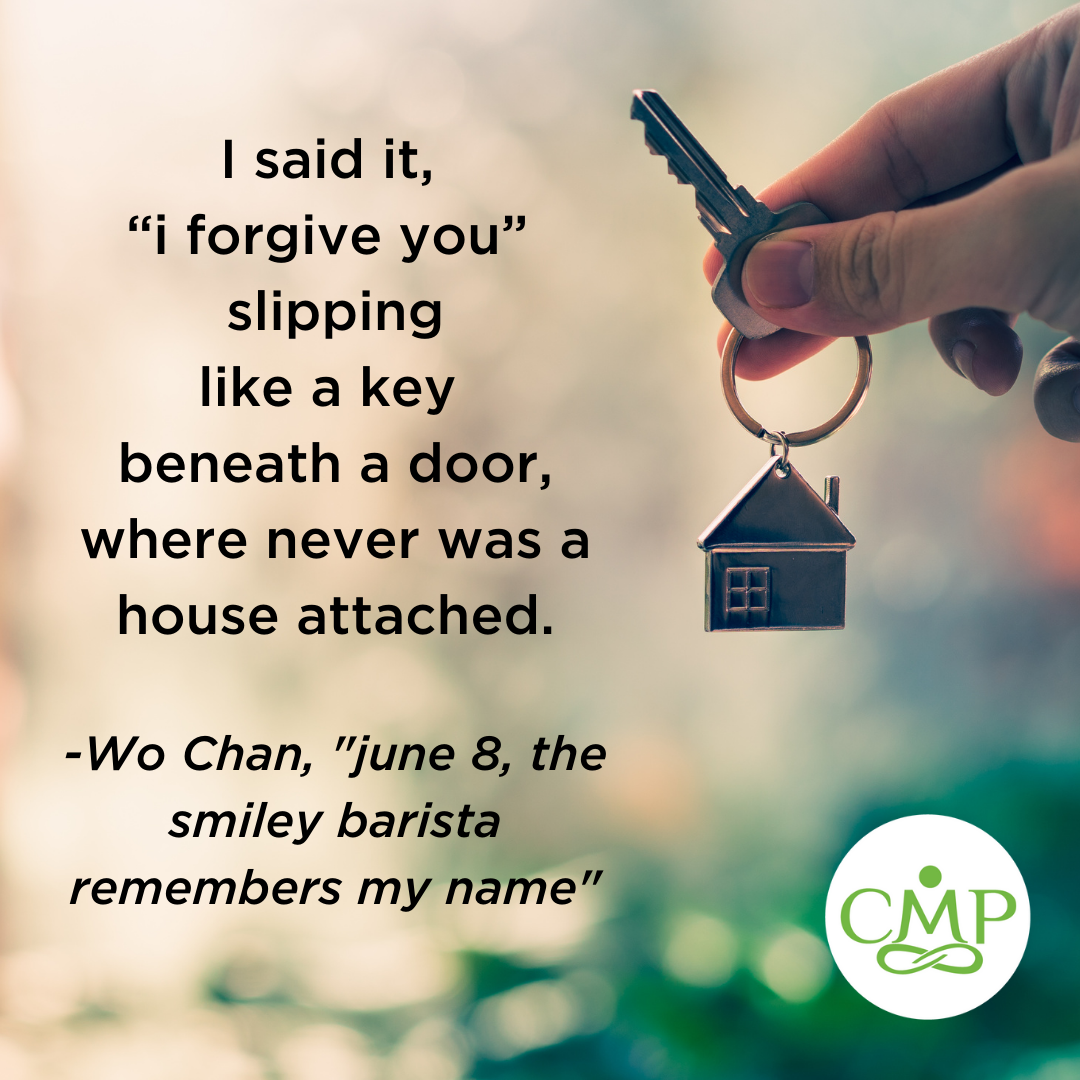The Key...
"Beauty on earth so blue, even the cheese flowers
a culture with no democracy... Yesterday (for example),
I ate the same sandwich I eat every week: eggplant
roasted in red pepper aioli, a focaccia jammed full
by arugula, capers sweaty in browned butter. How
have I come to love routine? I’m thirsty and abashed.
The fabric of my childhood underwear triple axels in the wind—wow.
The whole neighborhood watches me do emails, go to therapy: she shed
revenge for forgiveness. I said it, “i forgive you” slipping
like a key beneath a door, where never was a house attached.
Is it beauty on earth, so blue? Each side stalled, you are touched,
forstanding the sun. Its fat macula borne down grips
(i wish! i saw! i fear! i heard! i dream) like an emotion.
This is not a feeling. This can be, I think, a conversation.”
- Wo Chan, "June 8, the smiley barista remembers my name"
Sunday came and went and I didn’t manage to write the weekly blog post. Partly, it was that it was so beautiful out I jealously held on to my outdoor time for every minute that I could. Partly, too, it was that I didn’t feel I had anything to say that would warrant you spending time indoors looking at a screen reading it. Nothing had struck or moved me in a way that I felt compelled to share it (besides the sounds of the peepers, the golden glow of sunshine, the precious flash of gold and red on a blackbird’s shoulder…).
And then today I read the poem "june 8, the smiley barista remembers my name” by Wo Chan (italics are the poet’s). The Tibetan word for meditation can be translated as “familiarizing” (or so I’ve been told. Please correct me if I’m wrong!). This has always rung true for me. I feel more familiar with my lived experience after time on the cushion, or even after paying attention for just a breath or two to what is happening in this very moment.
Some of my most “familiarizing” meditations come after I’ve stumbled across and chewed on a poem for a while. Like the key Wo Chan mentions in their poem, the ideas shared through poetry often seem to unlock something for me.
I recently came across the phrase, “Forgiveness means giving up all hope of a better past.”…. (Pausing here because that phrase deserves a pause….)
And I’ve been trying that phrase on for size, noting where it feels like it fits perfectly, and other places where it catches just a bit. Wo Chan’s poem captured some of what the phrase opened up for me. “She shed revenge// for forgiveness. I said it, “I forgive you” slipping/ like a key beneath a door, where never was a house attached…..” And then, later in the poem,“This is not a feeling. This can be, I think, a conversation”.
What struck me about this last line is that forgiveness is an act rife with emotion, and emotions ask us to be in dialogue with them. Often, we pass right over them, or assume that they are monolithic, solid blocks. What they are asking for is to be seen, to be related to with openness, so they can more fully reveal their shifting nature to us. And when we begin to be in relationship with our emotions (as in, “I see that there is sorrow here. Sorrow, I see you.”), both we, as the perceiver of the emotion, and the emotion itself, once perceived, shift a bit.
I had been hoping you would forgive me for not writing the blog on time, but in reality it was me who needed to offer forgiveness to myself. Aren’t we our toughest critics, after all? Well, I had the conversation with all the attendant emotions that showed up as I negotiated this forgiveness and we collectively have given up all hope of a better past. And when we did that, we realized that the past, just as it was, had served us in its own way.
Hoping you can join us this week at one or more of our nine live meditation sessions, where we can familiarize ourselves with whatever arises.
May all being feel the liberation of forgiveness, and self-forgiveness in particular.
Your CMP family

